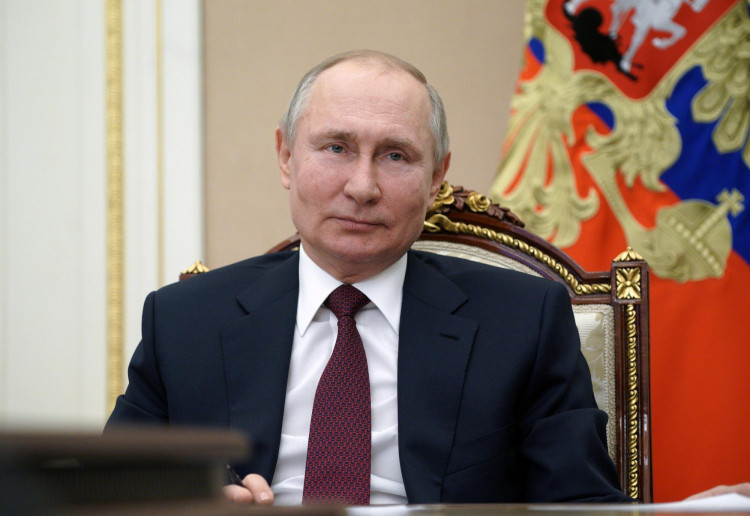Ukrainian forces launched a surprise offensive into Russia's southern Kursk region this week, marking a significant escalation in the ongoing conflict that has now spanned over two years. The incursion, which saw Ukrainian troops advancing deep into Russian territory, has not only embarrassed the Kremlin but also forced Moscow to reassess its defensive strategies.
The offensive, described by analysts as "doing the least obvious thing," saw Ukrainian troops backed by tanks and air defenses, pushing more than 20 kilometers into Russian territory. The attack caught Russian forces off guard, leading to the surrender of numerous soldiers and prompting the evacuation of hundreds of civilians from the town of Sudzha and surrounding areas. The scale and surprise of the operation have been compared to Ukraine's previous successful counteroffensives in Kharkiv and Kherson in 2022.
Russian President Vladimir Putin, visibly exasperated in a video released by the Kremlin, labeled the attack as "another major provocation" by Kyiv. The governor of the Kursk region declared a state of emergency, describing the situation as "very difficult." The incursion has not only been a tactical success for Ukraine but has also delivered a severe blow to Russian morale and exposed significant vulnerabilities in Russia's border defenses.
George Barros, an analyst at the Washington-based Institute for the Study of War, noted that Ukraine achieved "operational surprise against great odds" by exploiting Russia's lack of readiness along its borders. This surprise has forced the Russian military to redeploy resources, potentially weakening their positions elsewhere along the front lines. The Ukrainian forces, described as an expeditionary force, have made rapid gains, seizing key infrastructure, including a natural gas transit hub near the border-a symbolic and strategic victory.
The attack has rekindled anger among Russian civilians and military personnel alike. Andrey Gurulyov, a former commander in the region, called for a military investigation into the decision to transfer units from the Kursk region ahead of the Ukrainian assault. Social media has been flooded with videos showing frustrated Russian civilians appealing directly to Putin, demanding answers and action.
Despite the initial success of the Ukrainian offensive, holding onto the captured territory presents a significant challenge. Russian reinforcements are expected to arrive, and the Ukrainian forces may eventually be forced to withdraw. However, the operation has already served several strategic purposes, including exposing critical weaknesses in Russia's defense planning and undermining the Kremlin's narrative that the war is under control.
Russian military bloggers, who generally support the Kremlin's military goals, have been vocal in their criticism of Moscow's handling of the situation. One prominent blogger, Vladislav Shurygin, accused the Russian leadership of bureaucratic rigidity and failing to anticipate the Ukrainian strike, which he described as part of a broader strategy to exhaust Russia with unexpected attacks on sensitive infrastructure and civilian populations.
The Kursk offensive has also drawn attention from Ukraine's allies. The U.S. has expressed support for Ukraine's actions, with Pentagon deputy press secretary Sabrina Singh stating that the operation is consistent with Washington's policy of defending against Russian aggression. The offensive has also highlighted the effectiveness of the new weapons systems supplied to Ukraine by its Western allies, including F-16 fighter jets, which are expected to play a crucial role in maintaining air superiority.
The broader implications of the Kursk offensive are still unfolding. Some experts believe that Ukraine's goal is not to hold large swathes of Russian territory but to disrupt Russian logistics, seize strategic assets, and capture prisoners who could be used in negotiations or prisoner swaps. The attack has forced Russia to divert troops from other critical areas, potentially weakening its positions along the front lines in Ukraine.
As the conflict continues, the Kursk offensive represents a significant escalation and a bold statement by Ukraine that it can take the fight to Russian soil. The operation has exposed the Kremlin's vulnerabilities and challenged the perception of Russian invulnerability within its own borders. For Putin, who has maintained a tight grip on power, the attack threatens to unravel the narrative that the war is under control and could lead to increased dissatisfaction among the Russian population.




